“I am convinced birth control destroyed my sex drive” says the title of a Reddit post in r/TwoXChromosomes, a women’s issues forum. Hundreds of comments follow with women describing how being on the Pill has completely changed their sex drive—and not for the better. “When I was on hormonal BC, I completely lost my sex drive” says one commenter. “[Birth control] destroyed mine and took the better part of a year to come back so I could experience what a natural female sex drive felt like,” says another.
But you don’t have to go down Reddit rabbit holes to discover women who are pinpointing their birth control as the culprit behind their weak libidos. This woman on Tiktok describes getting her libido back just days after going off the Pill, and there are a plethora of other videos describing how to fix low libido caused by birth control.
It’s not just individual women on social media who are opening up about this touchy subject — even The New York Times picked up on it. In a January 2024 article titled “The Link Between Birth Control and Sex Drive”, the author delves into what we know about how birth control can change your sex drive. While the NYT article gets a lot right, it ultimately misses the complete picture: birth control radically changes sex for every woman who takes it, on top of its disastrous effects on sex drive for some.
Why does birth control affect your libido?
If you’ve found that birth control negatively affects your libido, you are clearly not alone. But how and why does this happen? It mostly comes down to the fact that taking hormonal birth control makes your testosterone do a nosedive [1]. The synthetic hormones in the Pill suppress the testosterone your body produces, plus they increase the production of a hormone that binds to existing testosterone in the bloodstream and makes it inactive—a double whammy for your levels of testosterone.
On the surface, this might not seem like a big deal. Isn’t testosterone the male hormone? But it’s actually a huge deal for female libido. Testosterone peaks in a normally cycling woman at the midpoint of her cycle, right around ovulation [2]. This surge in testosterone causes an increase in your sex drive, which is why you have increased libido during ovulation (which is also when you’re most likely to get pregnant!). In other words… the human body is designed to want to reproduce.
If you’re not naturally cycling and taking hormonal birth control instead, you not only miss out on this ovulatory testosterone surge. Your testosterone levels are also dampened for the remainder of the month, too. According to the NYT article on birth control and libido, some women will experience a more exaggerated drop in sex drive due to genetic differences that require more free testosterone levels to activate their hormone receptors. This explains why some women experience little effect on their libido when they’re on the Pill, while others experience a complete deadening of their sexual desire.
This is not a drill: Studies show the link between birth control and lower sex drive
Another key aspect the NYT article brought up was the many studies done on how birth control decreases sex drive. One systematic review looked at 36 studies on the side effects of the combination birth control pill (which has both synthetic estrogen and progestin) and found that 15% of the 8,000+ women studied reported that their libido dropped during their time on the Pill, while a roughly equivalent amount reported that libido increased [3]. Of note, only 2 of the 36 studies in the review were gold standard randomized controlled studies, and these highest-quality studies were inconclusive.
An even more alarming study from 2016 randomly assigned 340 women to either take the Pill or a placebo over the course of three months [4]. Researchers then took blood draws to check the participants’ hormone levels and surveyed the women on their sexual function both before and after taking either the Pill or a placebo. By the end of the study, researchers concluded that although the Pill does not affect overall sexual function (which includes a total of 7 factors, including sexual responsiveness and self-image), it does significantly decrease desire, arousal, and pleasure.
Is birth control really the answer for a fulfilling sex life?
Our society has often thought of the Pill and sexual freedom for women as going hand in hand, a necessary intervention to divorce the pleasure of sex from procreation. The NYT article on birth control and libido took this view as a given. But if taking hormonal birth control causes a woman’s sexual desire and pleasure to tank, is this really the case? While it is true that taking the Pill often guards a woman (and her male sexual partner) against the reproductive consequences of sex, it doesn’t necessarily give her the consequence-free sexual pleasure she seeks.
Instead, it often takes away her desire to do the very thing she’s taking the Pill for—to have sex! It’s hard not to see the irony here: as society tells women they should take the Pill to have more sex, the very “medicine” negates the cure. Although a woman on the Pill may be able to have sex without becoming pregnant (although it’s not a given!), she’s now stripped of her desire to be intimate at all. For some women, this can even look like hypoactive sexual desire disorder, a clinically diagnosed lack of sexual desire.
There is a better way, though the NYT article neglected to mention it. Using fertility awareness methods (FAM) is a hormone-free way of naturally spacing or avoiding pregnancies that does not dampen your body’s testosterone surge. Using FAM can help support your libido by giving you a better understanding of your body’s natural rhythms, such as knowing ovulation will hold your biggest surge in sexual desire. Rather than using the Pill, which acts like a barrier between men and women and can even dictate who a woman is attracted to, FAM strengthens relationships. What could be more freeing than that?
Additional Reading:
How fertility awareness can help with a healthy libido
When libido issues are not all in your head
References:
[1] Database of Abstracts of Reviews of Effects (DARE): Quality-assessed Reviews [Internet]. York (UK): Centre for Reviews and Dissemination (UK); 1995-. The effect of combined oral contraception on testosterone levels in healthy women: a systematic review and meta-analysis. 2014. Available from: https://www.ncbi.nlm.nih.gov/books/NBK164632/ [2] R Atukorala K.,Silva W.,Amarasiri L., D., Changes in serum testosterone during the menstrual cycle – an integrative systematic review of published literature, GREM Gynecological and Reproductive Endocrinology & Metabolism (2022); 01/2022:009-020 doi: 10.53260/grem.223012 [3] Pastor, Z., Holla, K., & Chmel, R. (2013). The influence of combined oral contraceptives on female sexual desire: A systematic review. The European Journal of Contraception & Reproductive Health Care, 18(1), 27–43. https://doi.org/10.3109/13625187.2012.728643 [3] Niklas Zethraeus, Anna Dreber, Eva Ranehill, Liselott Blomberg, Fernand Labrie, Bo von Schoultz, Magnus Johannesson, Angelica Lindén Hirschberg, Combined Oral Contraceptives and Sexual Function in Women—a Double-Blind, Randomized, Placebo-Controlled Trial, The Journal of Clinical Endocrinology & Metabolism, Volume 101, Issue 11, 1 November 2016, Pages 4046–4053, https://doi.org/10.1210/jc.2016-2032
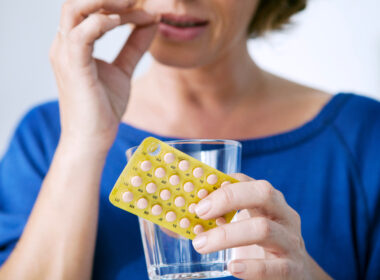
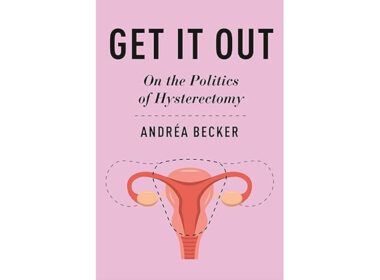
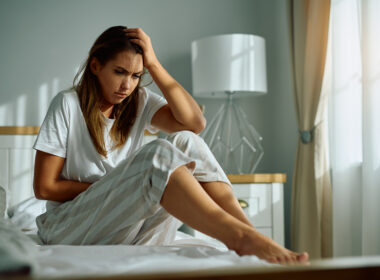

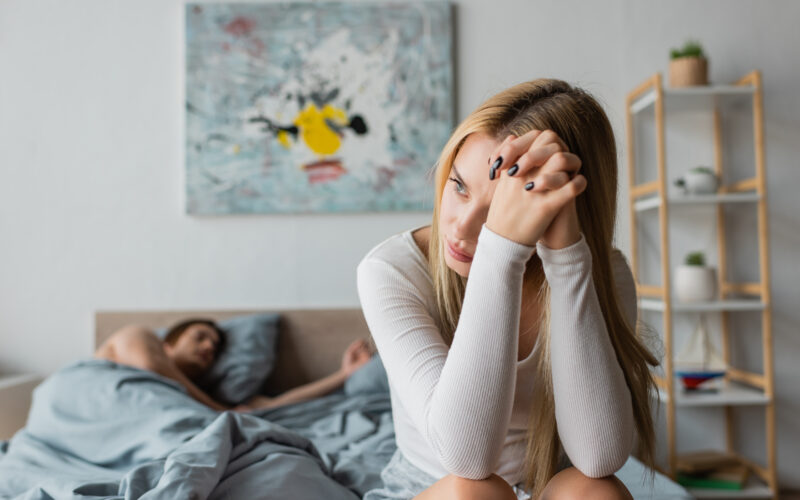




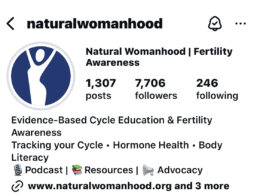

So is FAM the new NFP?